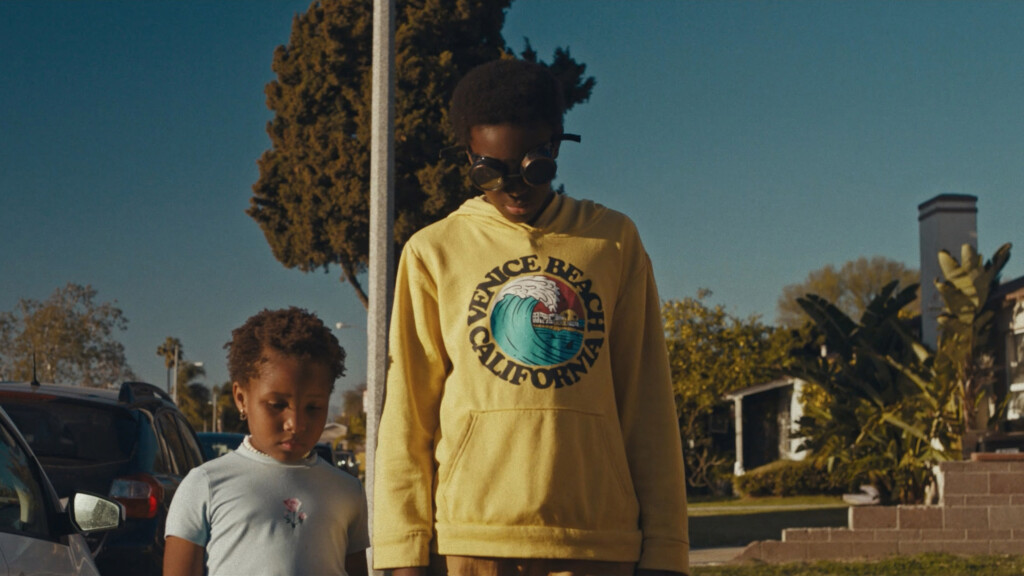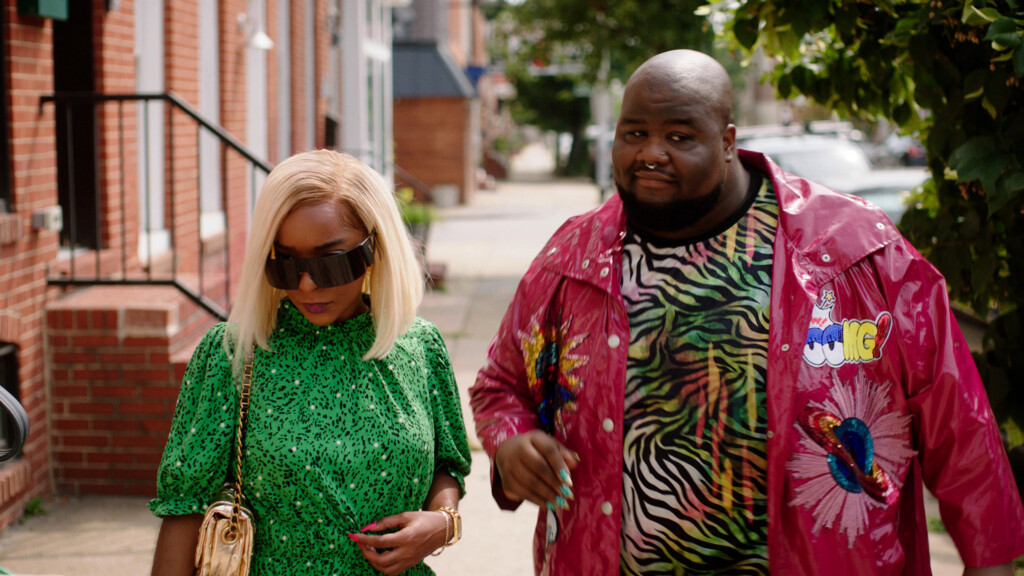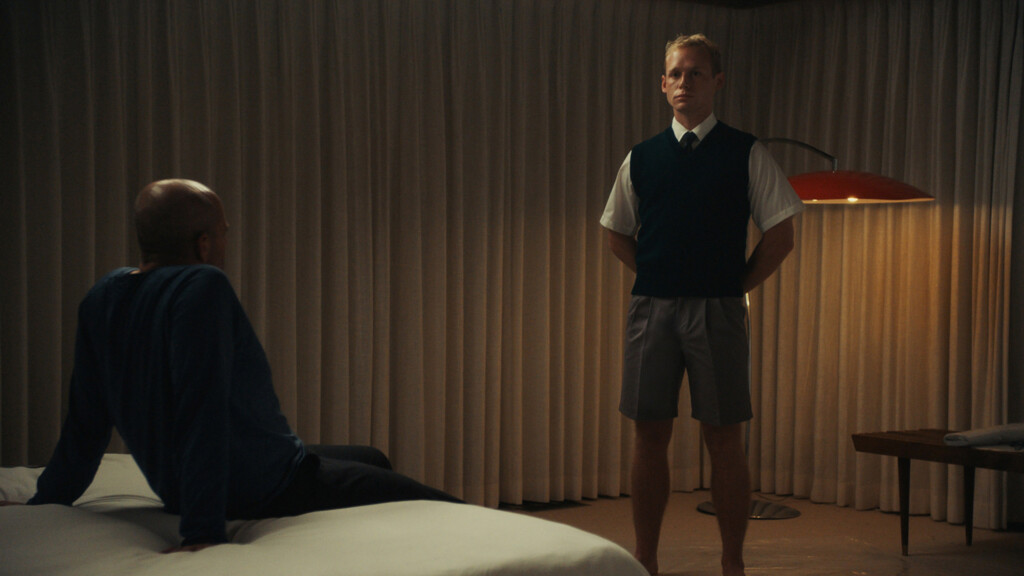This year’s Sundance Film Festival’s shorts offerings are filled with plenty of excellent options. The 59 short films for the 2022 program were selected from a record 10,374 submissions. Of these submissions, 4,701 were from the U.S., and 5,673 were international, representing 26 countries.
The Utah Review selected eight shorts from around the world to highlight. They include an excellent immigration documentary in animation form about Dreamers and the limitations of the Deferred Action for Childhood Arrivals (DACA) as well as two devilishly good animated narratives dealing with food. Others include a Cherokee documentary about the meaning of reciprocity, a hilarious comedy about a queer Black aspiring Baltimore rapper, a ‘traumedy’ about two brothers who are now tasked with caring for a nephew and niece, a queer take on the #MeToo movement as a thriller, and a three-minute sketch comedy about the ridiculous conversation that erupts when two young men bump into each other on the sidewalk.

We Are Here, directed by Doménica and Constanza Castro as their Sundance debut, is a nine-minute portrait of the voices of undocumented immigrants younger than 30, which clearly marks the limitations of the opportunities and promises in temporary programs such as DACA. Instead of a live action format, the sisters, who are immigrants from Mexico City, use animation to parallel the dynamics of the recorded audio stories being told.
We Are Here quickly establishes a compelling context for audiences to consider how undocumented young people endure, pandemic or no pandemic, the restrictions of lockdowns and social distancing. Their immigration status is in limbo; unresolved. If there are scholarships or opportunities to travel because of their achievements in school, they cannot risk taking them for fear of deportation. Another immigrant is overcome with emotion and disappointment because of a simple misdemeanor for possession of marijuana, an instance that carries far greater consequences for her than if she was a citizen. She feels deep remorse in realizing that this one small mistake would essentially wipe out the sacrifices her parents made in coming to the U.S. to make a better life. In every story, the individual is stymied by a barrier that DACA itself cannot resolve. The epiphany is that young immigrants need a clear path for obtaining documents and for becoming citizens because they have prepared themselves to truly realize the aspirations of Dreamers and others like them who already are contributing to their communities and workplaces.

In an interview with The Utah Review, Constanza explains how they arrived at the concept and the decision to make the film as an animated piece. “We were thinking about the invisibility of immigrants in so many ways and how we wanted to emphasize that people should know that we are here but also that no one wants to acknowledge us fully,” she says. Doménica adds that they collected eight hours of interviews for the film. She says the opening of the film frames the parallel to the pandemic-related experience that is familiar. “We wanted to paint a picture for others to understand a little bit — a tiny part of what our existence always is like, “ she says. The sisters are the founders of 271 Films, a creative production company based in Los Angeles. They also have collaborated as executive producers with Lena Waithe’s Hillman Grad Productions for the Indeed Rising Voices initiative, which invests in and mentors the next generation of BIPOC directors.
ᎤᏕᏲᏅ, which is Cherokee translated to What They’ve Been Taught, is an exquisite reflection on the Indigenous meaning of reciprocity as it applies to the natural resources and the environment used in one’s livelihood. Directed by Brit Hensel, a Cherokee Nation citizen, the film, made in collaboration with Keli Gonzales, features a first-language speaker. Equally significant is the film brings in scenes shot in Oklahoma and North Carolina, representing the western and eastern Giduwa (Cherokee) people. ᎤᏕᏲᏅ (pronounced oo-de-yo-NUH) is one of the films in the Reciprocity Project, a co-production of Nia Tero and Upstander Project in association with REI Co-op Studios, this film along with six others will screen in February at the Big Sky Documentary Film Festival in Missoula. This film strengthens the thematic punch of the land acknowledgment that has appeared at the start of every Sundance screening this year.

F^¢K ’€M R!GHT B@¢K, directed by Harris Doran and co-written with Emmanuel ‘DDm’ Williams, is a ripping hilarious story set in Baltimore about a queer Black rapper who hopes one day to quit their job at the department of public utilities. Sammy’s boss, who tries to compensate for her insecurities by being an office tyrant, is itching to fire the aspiring rapper. She believes the best way is to demand a random drug test in hopes that Sammy will test positive. Sammy still needs the job in order to realize a career in entertainment but also tries to stall for time, after eating a piece of cake without realizing it was made with weed butter. It becomes a triumph of getting the right revenge.
Starfuckers, directed and written by Antonio Marziale who also is in the cast for this 14-minute narrative thriller, works very well even though Marziale deliberately leaves out pretty much the backstory of any of three characters. But, the story outline is clear and absorbing about the power dance that puts men of enormous status and privilege and queer individuals who do not follow traditional paths or concepts of masculinity and see the fluidity of identity as a means of challenging the primary access to peer that those with status and privilege have abused.

Hallelujah, directed and written by Victor Gabriel, is described as a “traumedy,” highlights an innovative juxtaposition of wit and humor against painful memories, grief and the struggle to regain the sense of having a stable home that propels the film’s excellent results as artistic expression. Paper and Cherry are brothers who are the guardians of their nephew Hallelujah, a smart, loquacious, restless kid who tests their patience, and his sister. The film’s story takes place in Compton, California and Gabriel made the film in memory of his younger brother, Oscar, who was shot and killed in an act of gun violence. The brothers are stilling trying to sort out their new roles as guardians, especially when Hallelujad attempts suicide in the backyard. For a short film, the substance of the screenplay and outstanding performances by the cast make for a fully-fleshed narrative as a model of good filmmaking in the shorts genre.
Bump is directed by Maziyar Khatam, who has Iranian roots and lives in Canada. Khatam also stars in this three-minute film, set on a street in Toronto, which starts out innocently enough as two guys bump into each other, including one who was preoccupied on his phone. It sets up a verbal confrontation that quickly mushrooms into a thoroughly ridiculous exchange that, frankly, also sounds so damn realistic. The film is shot from across the street where the incident occurs, so each viewer gets the best eyewitness seat in the house.

Two animation pieces from outside the U.S. offer strange but credible takes on food, culture and eating habits. Meal On The Plate, directed by Chenglin Xie, takes the old saw that “you are what you eat” to a fresh direction with wit and intelligence. The characters eventually take on the appearance of the food they eat daily but when a new community member appears, things start to change. The townspeople try adapting to new eating habits but the consequences prove unsettling.
Rendang of Death, from Indonesia, illustrates what could happen when two people are competing for the last remaining plate of the restaurant’s signature dish. Rendang is one of the definitive dishes of Indonesia, which features caramelized meat covered in a sauce rendered from coconut milk and the classic aromatics of galangal and lemongrass and then served over rice flavored with turmeric. It’s intoxicatingly good so the premise of the wild free-for-all animated short is well established. The film is a collaboration of the artist collective Percolate Galactic, a Jakarta-based enterprise which works in classic 2-D animation, and Andri ‘Yujin’ Sick, whose love of fight scenes from old Asian movies is translated with convincing effect in Rendang of Death.
